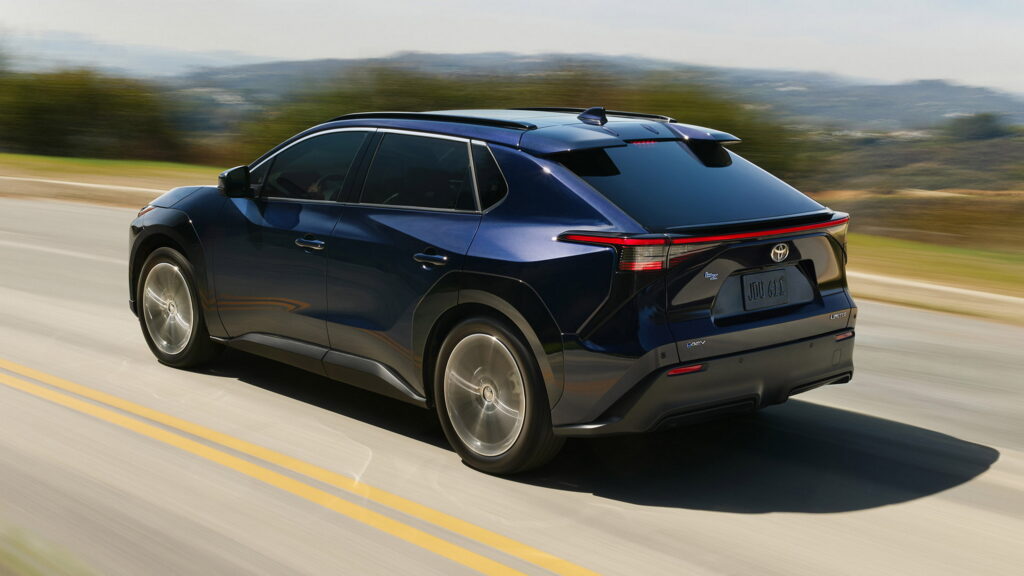
- Toyota must begin development within three years of buying land.
- The automaker has also cut its global electric vehicle sales outlook.
- Brand’s EV sales have grown by just over twenty percent this year.
For the second time this year, Toyota has delayed its plan to build a new factory dedicated to EV batteries in Japan’s Fukuoka Prefecture. The decision, while not unexpected, highlights the company’s cautious approach amid fluctuating global demand for electric vehicles.
Sales of Toyota’s EVs have slowed, yet the automaker maintains that the plant will still move forward in due course.
Read: Toyota’s Lineup Overhaul Could Include A Surprise Sedan And Electric Highlander
Toyota paid roughly 6 billion yen, about $39 million, for the site located in an industrial zone under development in northeastern Fukuoka Prefecture. As part of the purchase, the company agreed to begin construction within three years.
Earnings Results Shift The Timeline
Despite this, the car manufacturer announced in March that it would postpone work at the site due to fall demand for its EVs. The governor of Fukuoka, as well as Toyota President Koji Sato, have since confirmed work on the site has been postponed for a second time.
Production had initially been slated to start in 2028, though an updated timeline has yet to be provided, according to Nikkei Asia.

Word of the delay coincided with Toyota’s latest earnings report. It cut its global EV sales expectations by 10 percent from a previous forecast of 277,000 units for the fiscal year ending March 2026.
Even so, Toyota hasn’t ruled out adjusting its long-term targets, including its aim to reach 1.5 million global EV sales in 2026, a figure that could yet evolve as market conditions change.
Toyota Is Still Betting On EVs
Notably, Toyota is still investing heavily in new electric vehicles and factories. It continues to work towards opening a new factory in Shanghai, China, around 2027, to produce EVs for Lexus. This facility will likely handle the production of the LF-ZC and LF-ZL that were introduced a couple of years ago as concepts.
Toyota’s EV sales through the first nine months of the year were actually up 20.6 percent to 117,031 units, but even so, that number has still fallen short of expectations.
Until the company is confident that sales will rise significantly, it doesn’t make sense to rush and build new plants only for them to sit idle or operate at partial capacity.

Sources: Nikkei Asia


